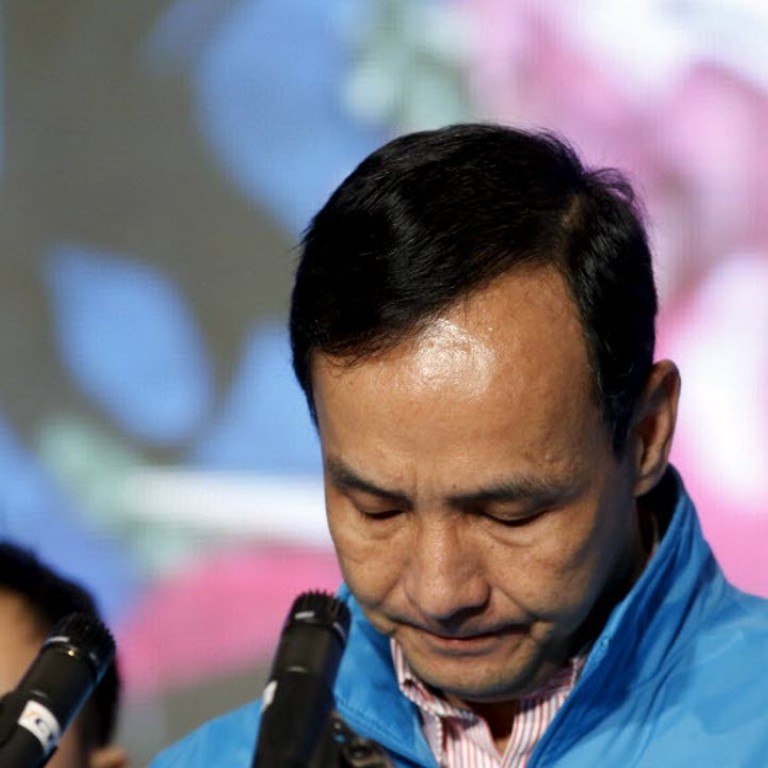
Taiwan’s Kuomintang party needs to reflect on its future direction
The party cannot hope to win back power without appealing to younger voters, and it can learn that skill from the opposition’s success
It says something about the Kuomintang’s search for answers in the aftermath of its demoralising electoral defeat that some voices called for the restoration of losing presidential candidate Eric Chu Li-luan to the party chairmanship, after he had resigned to take responsibility. After all, as a stopgap candidate who entered the race late, he cannot be blamed for voters’ sweeping rejection of the KMT. It is a measure of that rejection that president-elect Tsai Ing-wen and her pro-independence Democratic Progressive Party won resounding victories amid a low voter turnout, a sign of apathy that usually favours the status quo rather than change.
The turnout of 66.27 per cent was the smallest for 20 years. The anti-independence KMT therefore failed both to mobilise old support and attract young voters, now a potent political factor since the student-led sunflower movement of 2014 awakened an interest in politics and social justice. A party with more than 100 years of history is now losing the hearts of the young. With unity undermined by infighting among the top echelons, it has failed to formulate a good succession plan, or nurture any major rising stars who might be part of a credible one. The task of the new chairman, whoever it is, in turning around the KMT’s electoral fortunes sooner rather than later, and giving Taiwanese a clear choice of visions for the island’s future, is therefore a great challenge.
READ MORE: Taiwan elections ‘unlikely to affect Hong Kong-mainland relations’
The KMT needs to reflect deeply on its future direction. A starting point is to come to terms with core issues seen to have cost it government, and face the fact that in politics disunity is death. The issues include the failure to deliver on former president Ma Ying-jeou’s promises on economic growth, a higher GDP per capita and lower unemployment, and the perception that the benefits of greatly expanded cross-strait economic ties have not filtered down from big business to ordinary people, for whom salary growth has remained almost stagnant since the financial crisis more than six years ago.
Electorally the biggest immediate problem is the split in the KMT. As Ma tried to balance factional interests he flip-flopped on a number of big issues to the point where no one clearly understood what his position was. Even when united, the KMT cannot hope to win back power without appealing to younger voters. In that respect it can learn from the DPP, once deeply divided in defeat, which reinvented itself over eight years under Tsai’s leadership and projected an image that engaged with a new generation of voters as well as traditional supporters.

